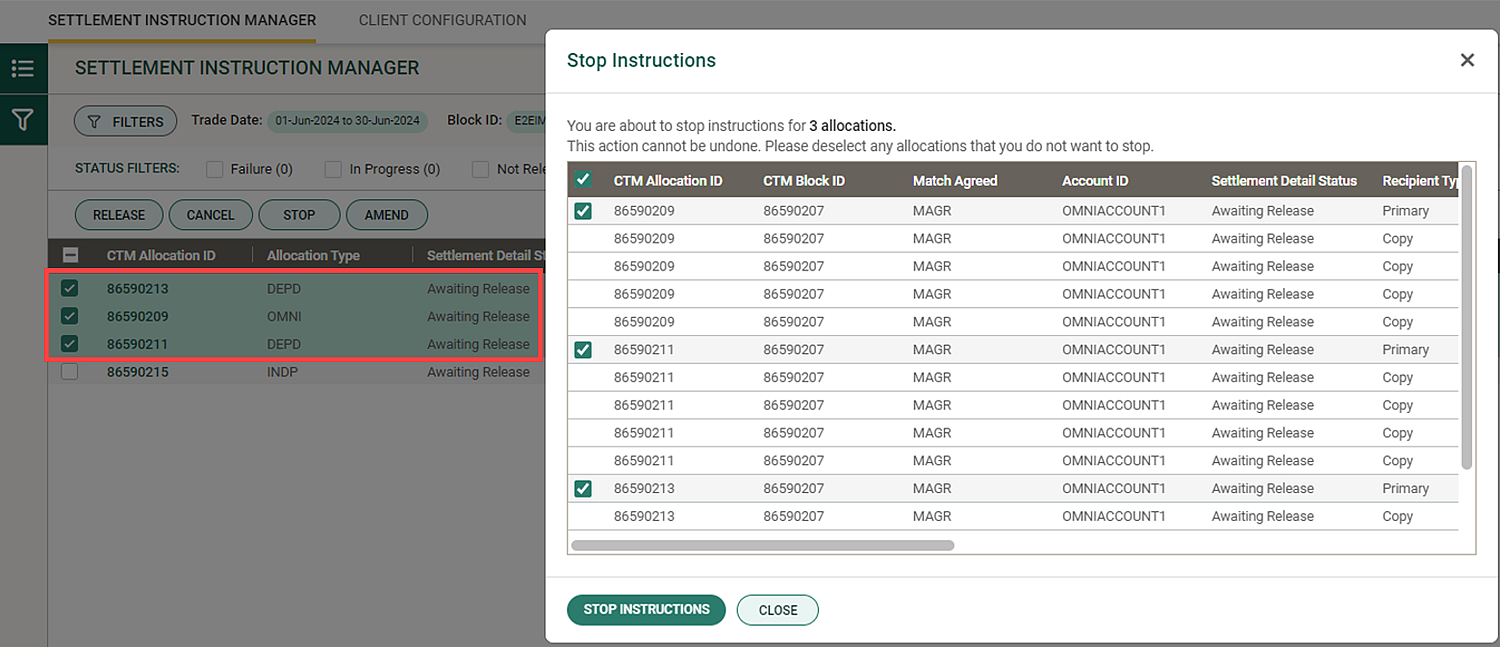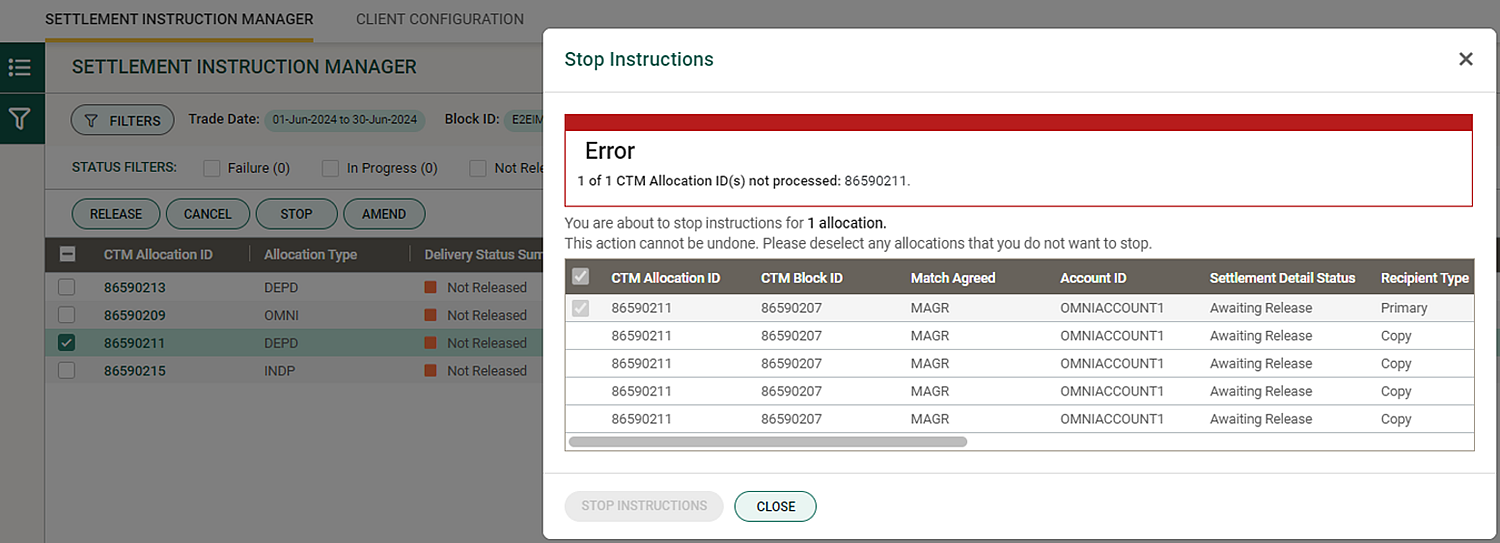Managing Instructions for Omnibus Allocations
Existing eligibility criteria apply when taking the known actions of Release, Cancel, Stop, and Amend on INDP allocations. There are a few differences with actioning upon OMNI and their DEPD allocations:
Release
Similar to releasing a regular allocation, releasing any Omnibus allocation type requires it to be in an Awaiting Release state. Multiple selections are supported from grid.
Releasing an OMNI
- Initial Release can only be performed on an OMNI and is only possible when all DEPDs are available as well as the Settlement Detail Status is in an Awaiting Release state.
Note
Settlement Detail Status of ‘Processing’ is an indicator that the DEPDs are still not available and are being processed. - Releasing an OMNI will always release the associated DEPDs when eligible. In cases when one or more dependents are already released, releasing the OMNI allocation will only trigger releasing of the dependents that were not already released (Awaiting Release state).
Releasing DEPDs
- DEPDs that are in Awaiting Release state can be released independently but only after an initial Release of the OMNI (followed by a Cancel and Amend).

Cancel
Canceling an OMNI
- Will cancel the OMNI as well as its dependents. In cases where one or more dependents are already canceled, canceling the OMNI allocation will only trigger cancelation of the dependents that were not already cancelled.
Canceling a DEPD
• A dependent instruction can be canceled independently provided Settlement Detail Status is in Released state

|
Stop
You can initiate a stop request against one or more Omnibus instructions at a time, assuming their Settlement Detail Status is Awaiting Release or Failed Validation - when instructions are created (existing eligibility criteria).
Stopping an Omni
- Will perform the stop action against OMNI and all its dependent instructions at once.

Stopping DEPDs
- A stop action cannot be performed on a dependent allocation, it must be performed at OMNI level. A validation error will be presented when attempting to stop a dependent allocation.

